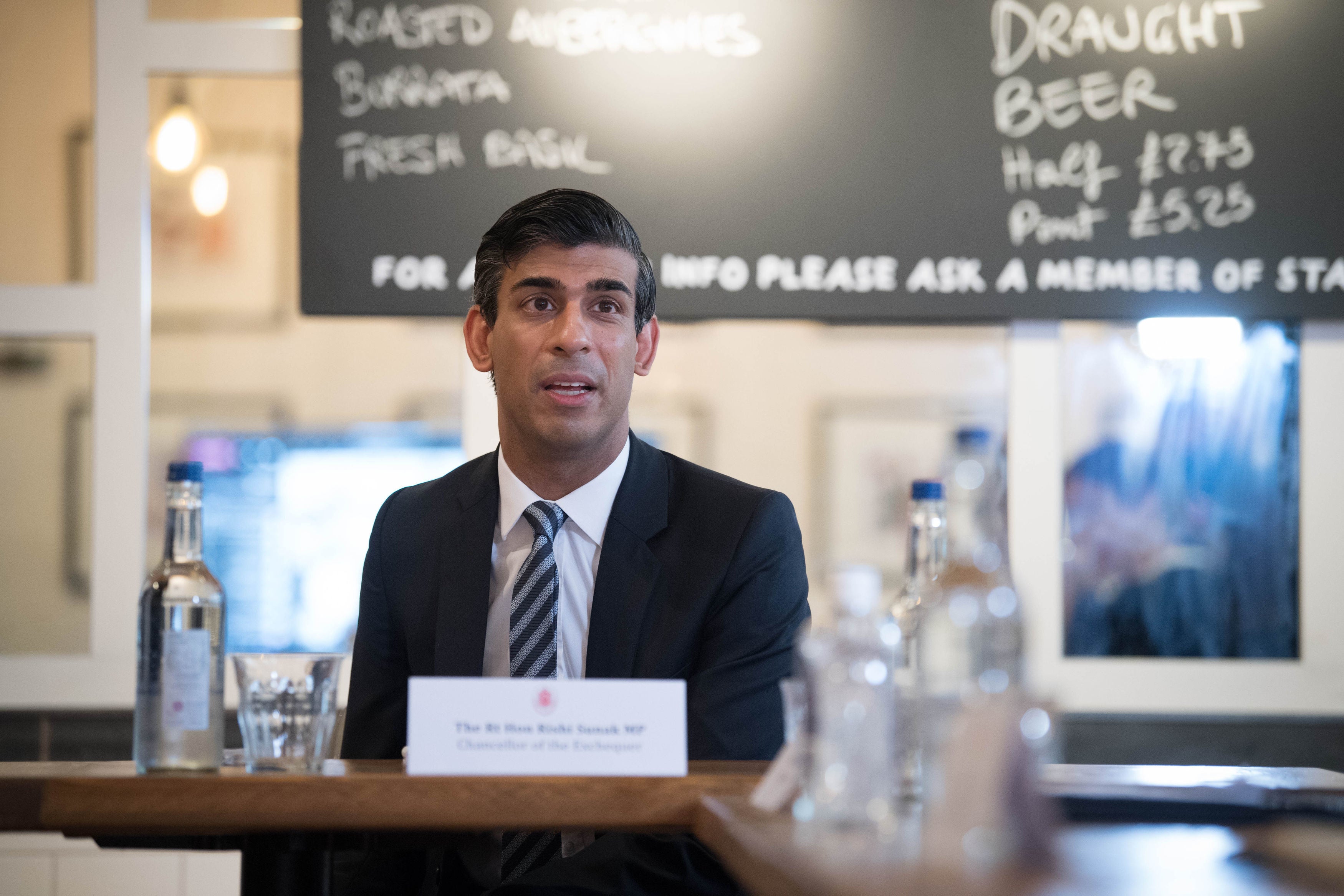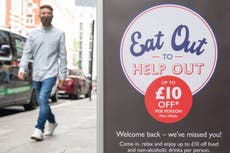Sunak falls short of ruling out return of Eat Out to Help Out scheme despite virus spread fears
‘We want to get consumers spending again and people out and about’, chancellor says

Rishi Sunak fell short of ruling out a return to the Eat Out to Help Out scheme to stimulate the economy - despite concerns its first incarnation may have led to a surge in virus cases.
The chancellor’s hospitality-backing policy, which saw the government foot the bill to allow restaurants and pubs the ability to offer discounts on dine-in meals, encouraged people across the country to emerge from the first lockdown and head out to eat.
Now asked whether he would consider a return to the policy in the aftermath of a second lockdown, the chancellor left the door open for a return to government-backed meal-deal.
“I won’t talk about specific measures but more broadly, I think it’s right that when we finally exit this, and hopefully next year with testing and maybe indeed vaccines as well, we’ll be able to start looking forward to getting back to normal.”, he told Sky News.
“I think we’ll have to look at the economic situation then and see what’s the best form of our support, and we want to make sure that we get the economy going strongly coming out of this.”
“We want to get consumers spending again and people out and about”, he added, “So we’ll look at a range of things to see what the right interventions are at that time.”
Businesses built around food and drink have been among the hardest hit by the virus due to its impact on social interaction - and the measures introduced by the chancellor subsidised around 100m meals across the period.
However concerns have been raised that the remedy for the hospitality industry may have come at a human cost. Last month a study from the University of Warwick suggested that the government scheme may have been responsible for eight to 17 per cent of newly detected Covid-19 clusters in August and early September.
The associate professor behind the study , Dr Thiemo Fetzer, told /The Independent/ at the time: ““The acceleration of the pandemic, that requires more aggressive measures like a lockdown, is the result of policy failures — including not having an effective test and trace system in place that would allow businesses to safely operate.
“It’s a consequence of very shortsighted policies that generate nice headlines, as the Eat Out to Help Out scheme did over the summer.”
Boris Johnson also accepted the scheme may have spurred on cases, telling the BBC “It was very important to keep those jobs going.
“Insofar as that scheme may have helped to spread the virus, then obviously we need to counteract that and we need to counteract that with the discipline and the measures that we’re proposing.”
Join our commenting forum
Join thought-provoking conversations, follow other Independent readers and see their replies
Comments

Bookmark popover
Removed from bookmarks